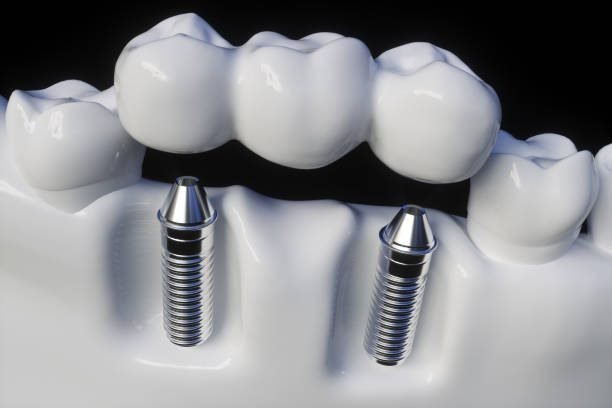Dental implants have emerged as a popular and effective solution for individuals dealing with tooth loss, offering not just the restoration of functionality but also a boost to their appearance and confidence. However, for those who have diabetes, a common question lingers: Are dental implants a safe option? Let’s delve into this important topic to understand the nuances and considerations for diabetics seeking dental implants treatment.
Understanding Dental Implants:
Before we explore the compatibility of dental implants with diabetes, it’s essential to grasp the fundamental concept of dental implants. Dental implants are artificial tooth roots surgically implanted into the jawbone and gum tissue. Over time, these implants fuse with the living tissues, creating a solid foundation that mimics natural tooth roots. This stability allows them to support various dental prosthetics like crowns, bridges, and dentures more effectively than traditional removable appliances.
Diabetes and Its Impact:
Diabetes is a metabolic disorder affecting the body’s ability to process glucose, a simple sugar. Insulin, produced by the pancreas, plays a vital role in regulating glucose levels. Individuals with diabetes often experience fluctuating blood sugar levels, which can lead to various health complications, including gum disease, tooth loss, vision problems, kidney disease, and nerve damage.

Why Diabetics Might Face Challenges with Dental Implants:
Diabetics, whether they have type 1 or type 2 diabetes, face particular challenges when considering dental implant treatment. Here are the key reasons:
Slower Healing: Diabetics tend to experience delayed healing processes. This slower healing can increase the risk of postoperative complications, such as infections, after dental implant surgery.
Infection Risks: Due to their reduced ability to combat infections, diabetics are more prone to gum disease, which, in turn, heightens the risk of infection around the implant site, potentially leading to implant failure.
Impact on Osseointegration: Osseointegration, the process where the jawbone bonds with the implant, can be affected by diabetes. In diabetic individuals, this process may take longer than usual or may not occur at all, compromising the success of the dental implant.
Steps to Ensure a Successful Dental Implant Procedure for Diabetics:
While the challenges are real, the good news is that diabetics can still consider dental implant treatment by taking proactive steps to manage their condition effectively. Here’s a practical guide for diabetics seeking dental implants:
Control Diabetes: The first and foremost step is to work closely with your healthcare provider to manage and stabilise your blood sugar levels. Proper diet, regular exercise, and adherence to prescribed medication are crucial elements of diabetes control.
Prioritise Oral Hygiene: Diabetics are more susceptible to oral health issues like gum disease, tooth decay, and dry mouth. Maintaining a strict oral hygiene routine, including brushing teeth twice a day and daily flossing, is vital to ensure a healthy oral environment.
Treat Gum Disease: If you already have gum disease, it’s essential to seek prompt treatment from your dentist. Treating gum disease before undergoing dental implant surgery can improve your chances of success.
Regular Dental Check-ups: For all patients, including diabetics, regular dental check-ups are vital. After dental implant placement, these check-ups become even more critical to monitor progress and address any emerging issues promptly.
Also read: How Do You Know if Your Gums Are Strong Enough for Implants?
Conclusion:
While diabetes can pose certain challenges for individuals considering dental implants, it doesn’t necessarily rule out the possibility of this treatment. With effective diabetes management, diligent oral hygiene, and proactive measures, diabetics can increase their chances of a successful dental implant procedure.
Remember, it’s important to consult with a qualified dentist in Aberdeen who can assess your specific case and provide personalised guidance on the best course of action. By taking these steps and seeking expert advice, individuals with diabetes can achieve a beautiful and functional smile through dental implants.
Ready to discuss your dental implant options? Contact Bridge St Aesthetic and Dental Implant Clinic Aberdeen today!
Frequently Asked Questions (FAQs)
Do diabetics heal more slowly after dental implant surgery?
Diabetics may experience slower healing, increasing infection risks, making post-op care crucial.
What can diabetics do to improve dental implant success?
Manage diabetes diligently, maintain oral hygiene, treat gum disease, and attend regular check-ups.
Related Article: Can One Implant Replace Two Teeth?
Is osseointegration affected by diabetes in dental implant patients?
Diabetes can delay or hinder osseointegration; strict blood sugar control is vital for better outcomes.
Can diabetics experience dental implant failure?
Uncontrolled diabetes raises the risk of implant failure due to slow healing and infection susceptibility.
How can I determine if dental implants are right for me with diabetes?
Consult with a dental professional for personalised advice and to assess your suitability for dental implants.
Also read: Are Dentures Better than Implants?






